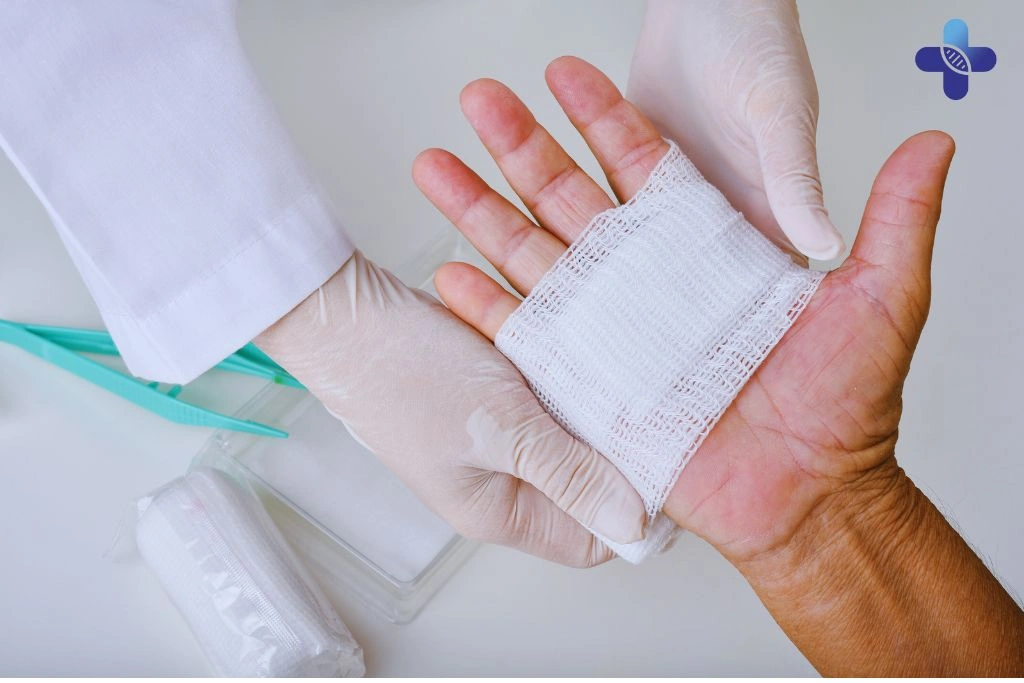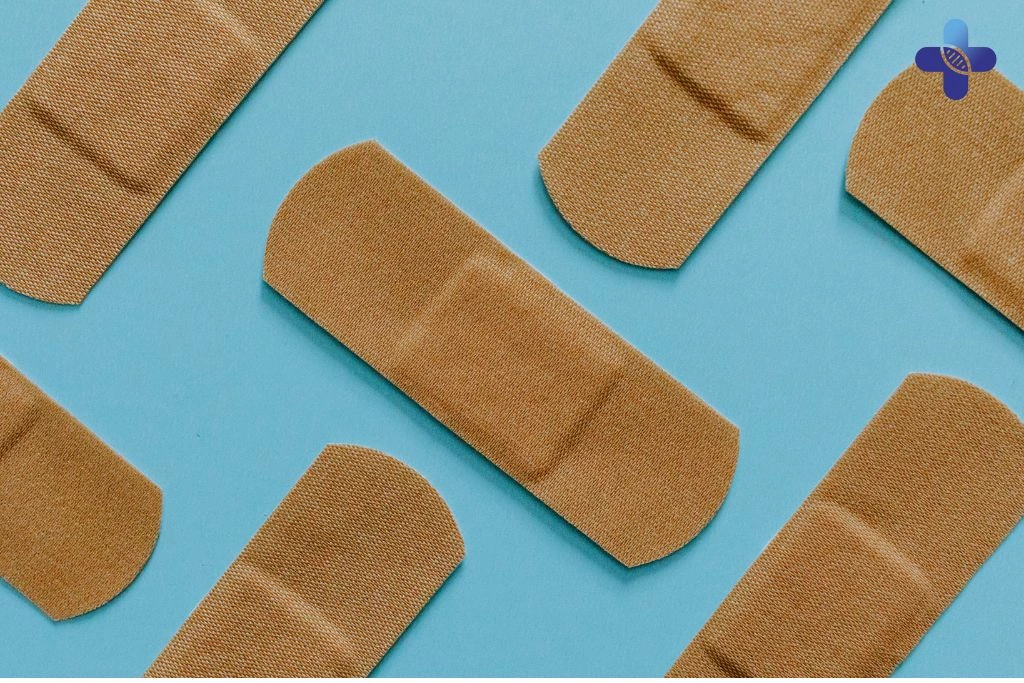When exploring the beauty of Bali, unexpected injuries can quickly turn your dream vacation into a stressful situation. Whether it’s a minor scrape from a beach stroll or a more serious wound from a scooter accident, knowing how to respond is crucial. At Life Everyouth Bali, we’ve seen how common wounds in Bali—especially among tourists and expats—often go unnoticed until they become infected. This guide will help you understand the types of injuries that often occur and how to seek proper wound care in Bali.

Dealing with Common Wounds in Bali: A Guide for Tourists and Expats
Exploring Bali comes with its fair share of risks, especially when it comes to minor injuries that are often overlooked. From scooter accidents to cuts caused by coral, tourists and expats frequently experience wounds that require proper attention in a tropical climate. Without timely treatment, these injuries can easily become infected or lead to complications. At Life Everyouth Clinic, we specialize in providing high-standard wound care in Bali, ensuring your recovery is safe, fast, and supported every step of the way.
Understanding Common Wounds in Bali
Bali’s tropical environment, active lifestyle, and diverse terrain increase the risk of different types of wounds. From beach cuts to burn injuries, each wound needs specific attention to prevent infection or complications. That’s why Life Everyouth Clinic Bali offers accessible, fast, and reliable Bali medical clinic services, including emergency wound care.
Scooter Accident Wounds
Scooter accident wounds in Bali are among the most common injuries we treat at Life Everyouth Clinic. From road rash to deep cuts, these wounds need immediate cleaning and care. Our dedicated wound care in Bali team provides pain relief, proper dressing, and infection prevention to ensure fast healing after a scooter fall.
Infected Coral Scratches
Infected coral scratches in Bali often start as minor abrasions but can turn serious due to tropical bacteria. At Life Everyouth Clinic Bali, we treat these wounds with antibiotic support and advanced cleaning. Our experience in wound care in Bali ensures that coral injuries don’t ruin your beach holiday.
Burn Injuries from Scooter Exhausts
Burn injuries from scooter exhausts in Bali happen more often than you’d expect, especially among new riders. These burns can blister and scar without proper care. Through our wound care in Bali, Life Everyouth offers targeted burn management—from cooling treatment to sterile dressing and monitoring.
Beach-Related Cuts
Walking barefoot may sound relaxing, but beach-related cuts in Bali are a common reason for clinic visits. Glass, coral, or shells can cause injuries that seem small but risk infection. Our team handles every case seriously with expert wound care in Bali, including proper cleaning, tetanus coverage, and follow-up.
Animal Bites
Tourists often underestimate the risks of animal bites in Bali, especially from monkeys, dogs, or cats. These wounds can quickly become infected or lead to rabies. At Life Everyouth Clinic, our wound care in Bali services include bite cleaning, HRIG, and full rabies vaccine protocols to keep you protected.

Tips for Wound Care While in Bali
Clean the Wound Immediately
As soon as you get injured, rinse the wound with clean, bottled water or sterile saline solution. This first step removes sand, dirt, and bacteria—especially important in tropical settings like Bali. At Life Everyouth Clinic, we often treat wounds that have worsened simply because they weren’t cleaned early. Prompt rinsing is the foundation of effective wound care in Bali.
Avoid Using Unprescribed Creams or Oils
Many travelers apply coconut oil, aloe vera gel, or topical creams without knowing whether they’re suitable. Unfortunately, not all products are safe for open wounds, and some may trap moisture or bacteria. Always consult medical professionals before applying anything. Our team at Life Everyouth Clinic provides personalized wound care in Bali tailored to each injury type.
Know the Signs of Infection
Redness, swelling, pain, warmth, pus, and fever are classic signs that your wound might be infected. If you notice any of these symptoms, don’t delay care—tropical infections can progress quickly. Life Everyouth is ready to assess and treat infections before they worsen. Early action ensures your wound care in Bali stays simple and effective.
Keep the Area Dry and Protected
Tropical humidity can slow healing, so it’s essential to keep wounds dry and covered—especially after cleaning or dressing changes. If a wound stays wet too long, bacteria thrive and scabbing slows. At Life Everyouth Clinic Bali, we use climate-appropriate dressings that balance protection with breathability. This approach is a key part of our advanced wound care in Bali.
Always Seek Professional Help
Even minor wounds can become serious if ignored, especially in unfamiliar climates and environments. That’s why we encourage you to visit a trusted Bali medical clinic like Life Everyouth Clinic for a professional evaluation. Our doctors are trained to handle all types of injuries, from burns and bites to infected cuts. Get peace of mind and proper wound care in Bali, anytime you need it.

Conclusion of Common Wounds in Bali: Causes & Treatment Guide
Injuries can happen anytime, even in paradise. At Life Everyouth, we specialize in wound care in Bali with services designed for international standards and fast recovery. Whether you’re facing a beach cut, scooter wound, or an infected bite, our experienced team is ready to help.
For personalized medical support and 24/7 wound treatment, visit Life Everyouth Clinic Bali—your trusted medical clinic in Bali for all types of wound care.
FAQ of Common Wounds in Bali: Causes & Treatment Guide
What is the most common type of wound in Bali?
Scooter-related injuries such as road rash, leg burns, or lacerations are the most common wounds treated at Life Everyouth Clinic. These injuries usually happen due to accidents involving scooters, which are popular among tourists. Without proper care, they can become infected quickly in Bali’s humid climate. Our team provides professional wound care in Bali to prevent long-term complications.
Are beach cuts dangerous in Bali?
Yes, beach cuts in Bali can become dangerous if not treated promptly. Sand, seawater, and hidden debris can introduce bacteria that delay healing. Even small wounds can become infected and lead to swelling or pain. We strongly recommend visiting Life Everyouth Clinic Bali for proper cleaning and wound care in Bali.
How do I know if my wound is infected?
Infection signs include increasing redness, swelling, pain, pus, and warmth around the wound. You may also develop fever or feel unwell if the infection spreads. These symptoms require urgent medical evaluation. Life Everyouth, your trusted Bali medical clinic, offers thorough wound assessments and treatment.
Can coral cuts lead to serious infections?
Yes, coral cuts in Bali are notorious for delayed infections due to marine bacteria. These cuts often seem harmless but worsen over time without professional care. Our clinic regularly handles such cases using sterile techniques and antibiotics. Don’t wait—get expert wound care in Bali from Life Everyouth Clinic as soon as possible.
Do scooter exhaust burns require medical attention?
Definitely. Scooter exhaust burns in Bali can blister, become infected, or leave permanent scars without proper management. These burns are extremely common among first-time scooter riders. Our burn specialists at Life Everyouth Clinic Bali provide immediate wound care in Bali including cooling, dressing, and pain relief.
Is a tetanus shot necessary for wounds in Bali?
Tetanus shots are recommended for dirty, deep, or rusty-metal-related wounds. If your vaccination is outdated or the wound is contaminated, our doctors will suggest a booster. Tetanus can be life-threatening but is preventable with timely action. Visit Life Everyouth, a reliable medical clinic in Bali, for quick protection.
What should I do if bitten by a monkey or dog?
Immediately wash the bite area with soap and water, then seek medical attention. Animal bites in Bali may transmit serious infections, including rabies. Life Everyouth Clinic provides full post-bite protocols, including wound disinfection, rabies vaccine, and HRIG. Fast response is key to prevent complications.
Do wounds heal slower in Bali?
Yes, wounds may take longer to heal in Bali due to the hot, humid environment that promotes bacterial growth. Sweating and exposure to dirt or seawater can worsen healing. Our tailored wound care in Bali includes dressings and medications that support healing in tropical conditions. Trust Life Everyouth to monitor your recovery closely.
Can I treat a wound with over-the-counter ointment?
You can try, but many over-the-counter ointments are not suitable for tropical climates or certain types of wounds. Incorrect self-treatment often delays healing or worsens infection. We recommend consulting professionals at Life Everyouth Clinic Bali for guided wound care in Bali. It’s safer and more effective.
Is wound dressing available at clinics in Bali?
Yes. At Life Everyouth Clinic, we offer professional wound dressing, including sterile cleaning, antibiotic application, and follow-up visits. Our team uses international-grade materials for every type of wound. When you need safe and effective wound care in Bali, we’re here to help—every day, all year.

